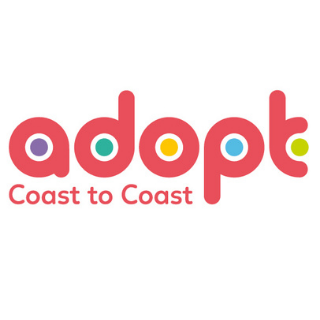We are always looking for homes for children with diagnosis of Foetal Alcohol Spectrum Disorder (FASD) and whilst there is a lot of information out there about the condition, hearing from those who have been there themselves is often the most practical and relatable. Here our guest writer Brian Roberts uses his experience as a Foster Carer of 25 years and FASD expert for The National Organisation for FASD (amongst other organisations), to offer advice on supporting a child with FASD as a parent.
 Parenting really isn’t easy… parents are almost always on duty and when the kids are out with friends or at school, parents are still thinking of them. With adoption there is always an added dimension and if the children or young people have Foetal Alcohol Spectrum Disorder (FASD) or are suspected of being affected then it can be even more complex.
Parenting really isn’t easy… parents are almost always on duty and when the kids are out with friends or at school, parents are still thinking of them. With adoption there is always an added dimension and if the children or young people have Foetal Alcohol Spectrum Disorder (FASD) or are suspected of being affected then it can be even more complex.
It’s not always easy to unpick what is down to being a child, what might have been caused by the care experience, or what has been caused by pe natal alcohol exposure. Possibly the pressure of trying to do that unpicking just adds to the anxiety of being a parent.
It’s also true that all children are different, they develop at different rates, have different emotional tolerances and their ability to learn for prior experiences is also different. With over 400 different conditions that can be associated with FASD, it also means that the way that children and young people present is also very different.
Sadly, there is no magic wand to wave to aid typical development. Therefore, there are some general messages about living with a loved one with FASD that might be useful.
- As parents we are going to be in this for the long term. Most children with FASD do mature and develop at a different pace. Our timescales tend to be longer than those of thepeople that we work with in schools, social services and even heath. So, parents need to be prepared for this.
- Our young people do best when they understand why their brains work like they do. As parents we know our children best, so we are best placed to help them to understand. As parents we therefore need to educate ourselves before we can help our children. Many families find the Me & My FASD interactive website a useful tool.
- Children and young people do best with a routine that they understand. This can be a challenge to parents because things change, and traditional family life does not always follow routines. Extra time and planning is needed to make things work and on occasions we need to pull out of new experiences or spontaneously organised events because they are causing everyone too much anxiety.
- Checking for understanding of what you have said or asked someone with FASD to do is the key. Just because you have described something brilliantly, doesn’t mean it’s been received or remembered. When you check for understanding it may well be that you are reinforcing what you have said to make things clearer, so it isn’t wasted.
- In the same way expect to repeat things a number of times to ensure that learning take place. Sometimes when your child seems to have mastered something one day, they may appear to have forgotten it another day. It can be frustrating but remember the slow drip feed of consistent information is building neural pathways in the brain and eventually our children can achieve. And finally
- Don’t be afraid to admit that you have made a mistake, because we all do. We are all humans. Understanding and overcoming mistakes are just another learning experience for everyone. Equally try not to worry that other parents are ‘judging you’. We need to parent children with FASAD differently and that is our reality, that parents with a child without the condition possible don’t appreciate.
More than anything surround yourself with people who understand. Join the FASD UK Alliance or their Facebook page.
More information about supporting a loved one with FASD can be found on The National Organisation for FASD website.
Find out more
We are always looking for homes for children with diagnosed or suspected Foetal Alcohol Spectrum Disorder (FASD). If you think you could offer the support, love and nurturing a child needs to thrive why not complete our enquiry form today?
If you are a parent looking for support with a FASD diagnosis please email adoptcoasttocoast@durham.gov.uk and we will point you in the right direction.
Want to know more?
Make an enquiry Download our information pack (PDF) News and events
Calling us for free on 03000 268 268 will help us to put you in touch with our duty social worker
